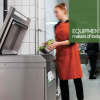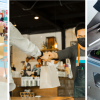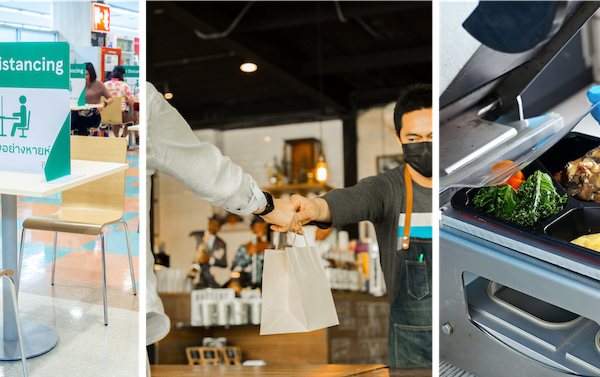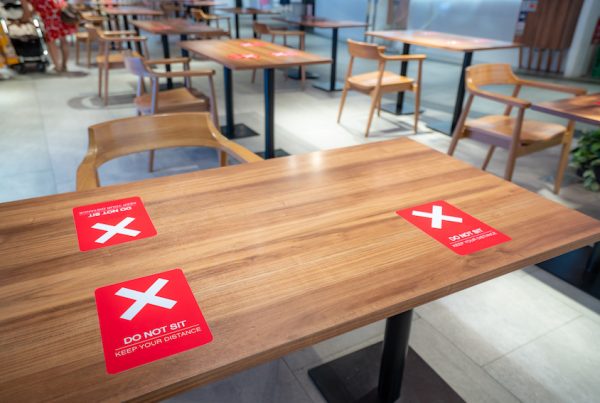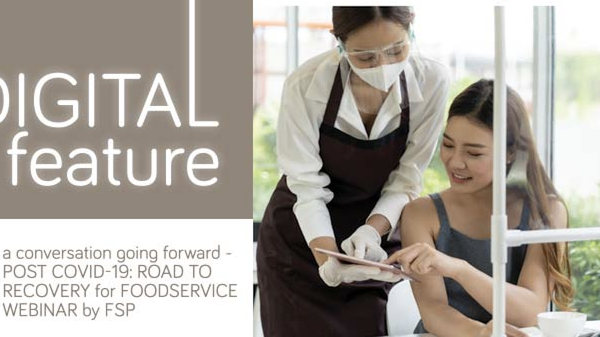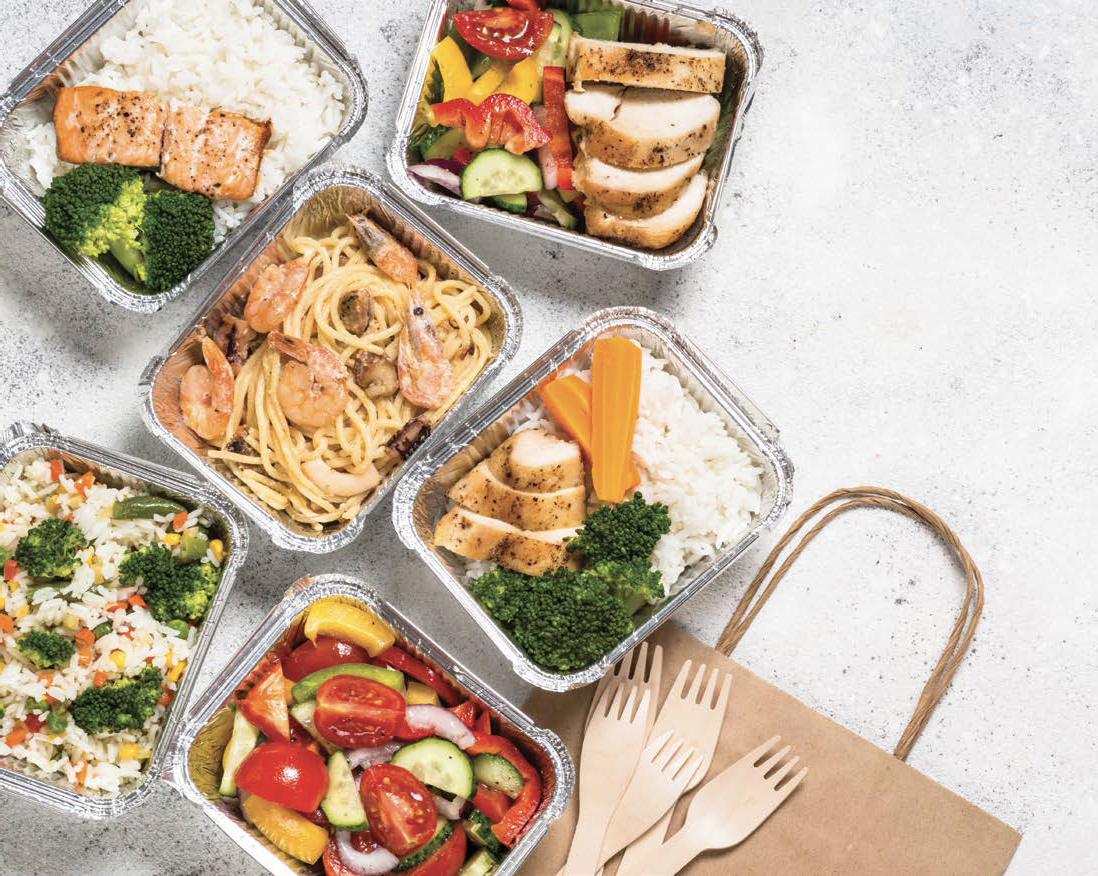
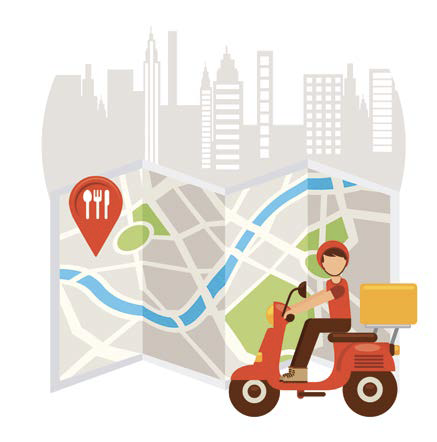
Here’s the thing that has been getting into our head (and for many unfortunately, their homes), and that’s coronavirus. The horror of the word has crippled us from going out and doing the usual. In January in China, about 11 million residents were locked in Wuhan city, and only allowed to leave their compounds once every three days. While these restrictive measures placed a strain on Wuhan residents, some resorted to using online food delivery services. Residents who had no access to food in their neighbours ordered groceries in bulk on WeChat alongside their neighbours so food can be delivered to their homes. But smaller communities who don’t have enough neighbours in one area are unable to have food delivered to their homes if they cannot meet the minimum order requirement for delivery.
Food Delivery for Covid-19 Prevention
Following increasingly strict coronavirus measures, demands for group-buying food delivery services have sky-rocketed. For some, organizing group purchases are the only way they can get more food. Supermarkets and grocery stores have set up group-buying services on the Chinese messaging app WeChat, with chats for buying certain items like meat, vegetables, and milk. More sophisticated shops set up apps within WeChat for Wuhan residents to order food.
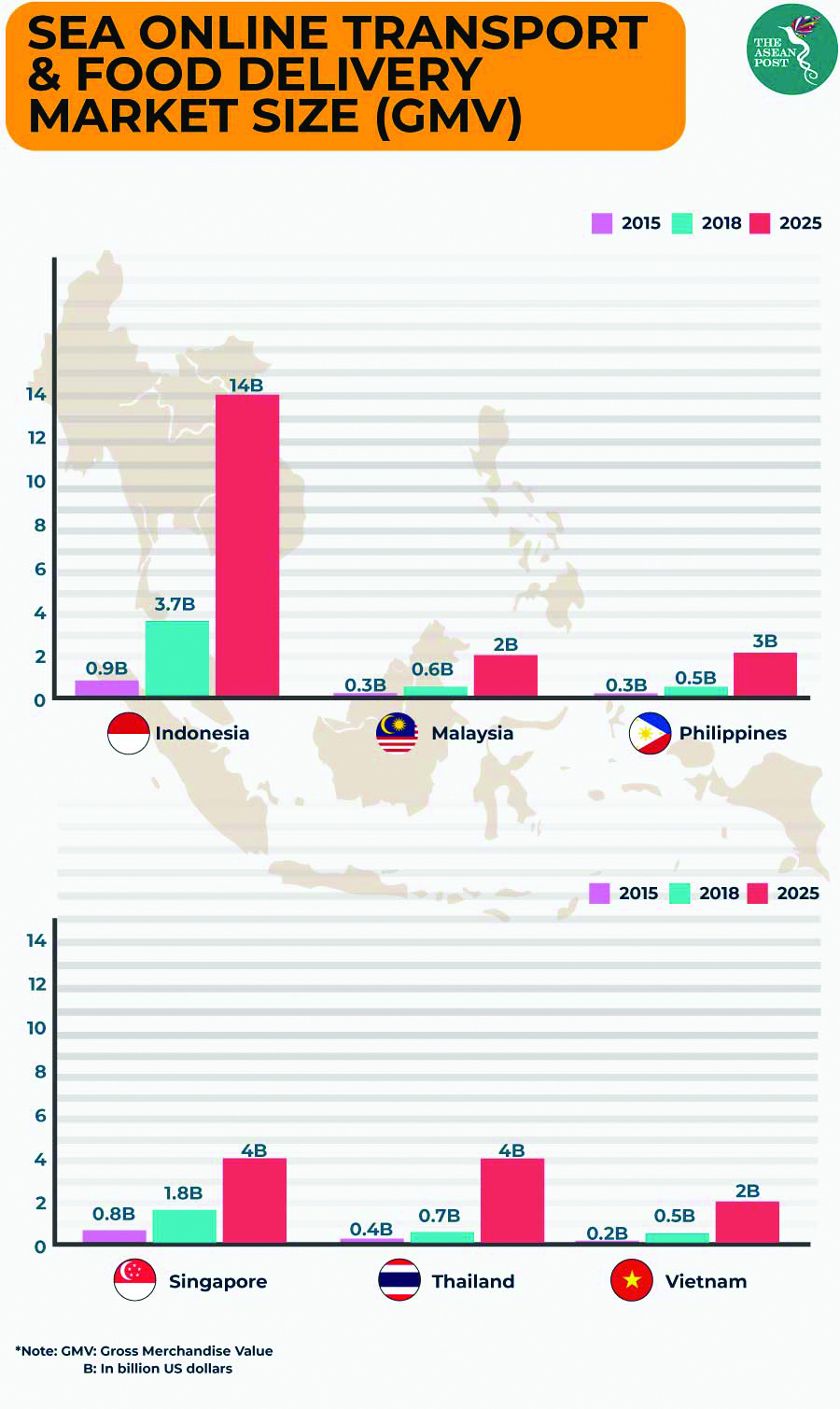
The expected growth of food delivery services in Southeast Asia. Image via The Asean Post.
Food Delivery in Southeast Asia
The number of those infected in China goes far off that of Southeast Asia. Yet, its better safe than sorry. Online food delivery services are slowly beginning to penetrate the market in this region, and for times such as this, the redemption of safety seems to be the priority for many of us. In Southeast Asia, total online food transactions when compared to the percentage of dine in and take out is comparatively lower compared to developed markets such as the U.S. and China. That only proves that the penetration headroom in this market is expansive and a prospect worth paying attention to.
Although food delivery systems currently promise a slim profit margin, entrepreneurs are still turning towards the business idea due to its reach and revenue. Compared to ride-hailing services, the food delivery business is forecasted to be the larger and faster growing market strategy for service providers. As reported by Singapore state investment firm Temasek and Google, food delivery market in Southeast Asia is expected to grow from US$2 billion in 2018 to an estimated US$8 billion in 2025. Jumping into the bandwagon are ride-hailing companies such as Go-Jek and Grab that have used their rapport with well-known brands and larger user database to compete with purely food delivery players such as FoodPanda and Deliveroo. In fact, GrabFood even “overcame” UberEATS as part of its takeover in Southeast Asia.
Grab Food
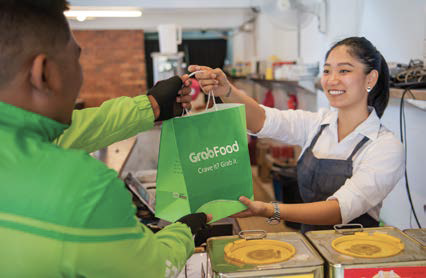
Image via Seasia
Since the start of operation in 2017, GrabFood has expanded to 204 cities from just two, and has reached six countries. It has grown 10 times bigger in the region of Asia only in less than two years, giving top-line revenue that is rather exponential than linear. The food delivery service originating from the e-hailing app, Grab, delivers “great food from local restaurants, straight to the doorsteps of hungry customers.” For a ride-hailing business such as Grab, food delivery is a good way to build loyalty and “attachment” with their clients and expand their user base. According to Grab, food has become a super high priority for many businesses, and it is certainly an area of growth and diversification. In fact, the food delivery market is under-penetrated at the present among the business lines where one of the biggest opportunities is seen in the next few years.
Therefore, some key advantages of partnering as a merchant for Grab’s food delivery business are:
- Market to Grab’s present customers. By tapping on Grab’s marketing channels, merchants are able to reach millions of hungry Grab customers and grow their businesses.
- No extra staff. Merchants get their own delivery service without requiring an additional staff.
- Customer retention. Merchants that sign up with Grab are able to reward and retain your customers by leveraging on the GrabRewards loyalty programme.
- Getting to know customers. Merchants are able to access online tools that help them track, analyse, and improve their business.
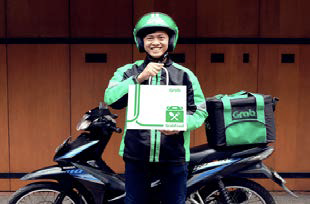
Image via Tech News Gadget
On the other hand, Grab believes the key to winning the game is going local. The company believes that by crafting a hyper local product that revolves around customers’ needs, a market can be won. The durian offering, for instance, was a craze in Malaysia and Singapore. Grab bought durians from local farmers and sold them to customers, market by market, and focusing on what exactly they want. Therefore, it is no surprise that when it comes to food delivery, GrabFood plays out different business for different countries.
Here are the documents needed to become a GrabFood Merchant-partner:
Malaysia
- Copy of Bank Account Details
- Copy of Business Documents – Form 9,13,49
- Copy of identification card/passport of the director/officer of the Merchant who is signing the Agreement
- Copy of business license (must be current and not expired) for each restaurant
- Copy of insurance policy covering all restaurants (must be current and not expired)
- Copy of Halal certificate (if applicable)
Singapore
- ACRA Business Profile (extracted no earlier than 1 week prior to Effective Date)
- Copy of identification card/passport of the director/officer of the Merchant who is signing the Agreement
- Current copy of NEA license for each restaurant
- Copy of insurance policy covering all restaurants (must be current and not expired)
- Copy of Halal certificate (if applicable)
- Class 3A/3B liquor licence (if applicable)
For more information, go to www.grab.com.
Foodpanda
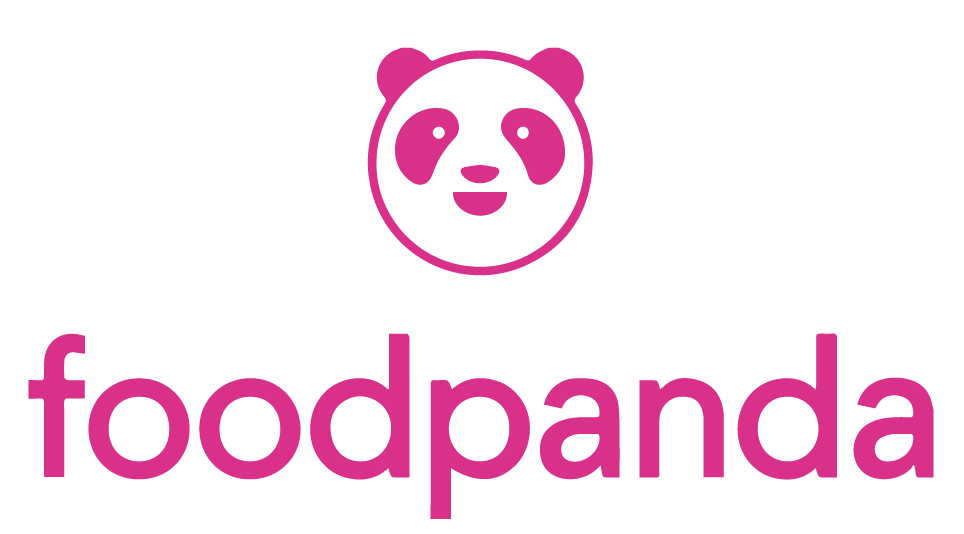
Foodpanda (stylized as foodpanda) is anotherpopular food delivery service in Malaysia, Singapore, and the Philippines. Streetpanda was also launched not long ago to offer delivery of street food. The mobile food delivery service which is also available on a website is available in 12 countries with active users throughout Romania, Bulgaria and Asia Pacific. In fact, the company has partnered with over 27,095 merchant restaurants across 193 cities, with over 15,733 delivery riders.
In Malaysia, the company launched a 24-hour food delivery for a limited time. The company has seen a shift in terms of its customers’ behaviour where convenience plays a big factor in terms of online food delivery and more often than not, this involves orders that come in past regular working hours. With the aim of convenience of satisfying customers’ cravings, Foodpanda Singapore has also introduced 24-hour deliveries incorporating fast food options and select cafes amongst other merchants.
Yet, Foodpanda believes the key is relevance. Constant reinvention and keeping up with the trends appear important for the company as the preferences of customers can often change overnight with the influence of social media. Such elements make up the bigger picture of interaction with customers. Scale and coordination are equally important for companies such as Foodpanda – it has to be present for the service to be consistent and to make sure less things go wrong.
By becoming a partner with Foodpanda, the following benefits can be enjoyed by restaurants:
- Reach out to a higher number of customers.
- Entice new users as Foodpanda has corporate partners registered with the company.
- Regular data analytics reports by Foodpanda which helps to analyse the business in the foodservice industry.
If you are in India, the following documents are to be submitted while registering as a Foodpanda partner:
- FSSAI Registration. All food business operators are made mandatory to have FSSAI License. A food business without FSSAI certificate is deemed unauthorised.
- Proof of invoice (consisting the details of all fees including service fee, taxes, delivery fee, and packaging charges)
- Scanned copy of restaurant menu
- Copy of cancelled cheque
- Minimum of three photos of back of house kitchen, front view of the restaurant, and packaging as well as other necessary photos.
There are also other services that Foodpanda offers.
Restaurants that are seeking more exposure or want to advertise limited time specialties can do so via Foodpanda. And it’s not just food, merchants such as pharmacies and grocery outlets are also a part of the Foodpanda partners network where basically anything can be delivered.
For more information on how you can partner locally in your country, you may go to www.foodpanda.com.
Deliveroo
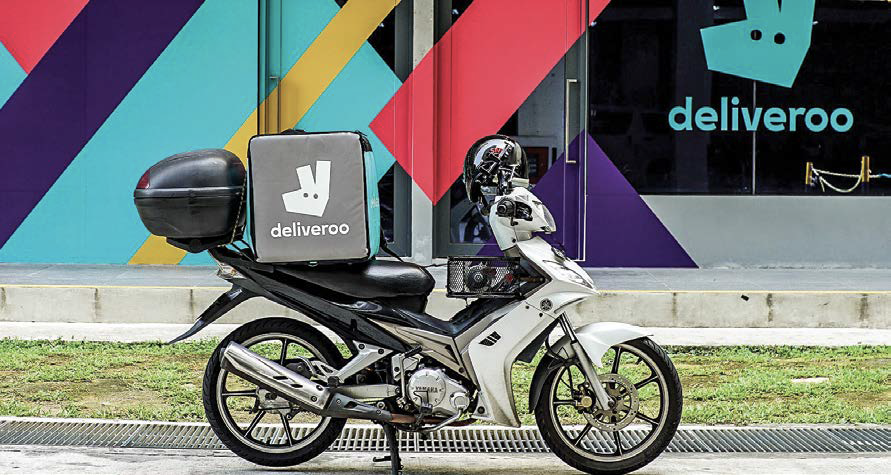
Image via KTCHNrebel
Founded by Will Shu in London, Deliveroo has revenue growth of over 650% since the day it started. The demand has also helped generate jobs in the foodservice sector of local vicinities. The idea of Deliveroo came as a result of Will Shu observing the lack of delivery among the great restaurants in London. Using the “Frank” algorithm, Deliveroo distributes orders based on the location of restaurants, riders and customers.
With Deliveroo’s platform, restaurants are also able to expand to new areas. The platform helps restaurants to set up kitchens within 8-12 weeks in new areas without the initial high costs of setting up high-street premises. Using data insights that identifies cuisines that are popular in specific local areas, restaurants are able to grow faster and offer wider choices to customers. For street food entrepreneurs seeking new customers as well as restaurants that seek to launch a new menu, Deliveroo is ideal in supporting growth and scalability in innovation.
To find out how you can partner with Deliveroo in Southeast Asia, go to www.deliveroo.co.uk.
It looks like the appetite for food delivery has never been greater than seen in year 2016, which reflects the immense demand and growth in the takeaway food and home delivery sector that outpaces the foodservice industry. While this has largely to do with the rise in consumers’ priority for convenience, this can be your best time for your restaurant to partner with these food delivery apps and seize the opportunity of higher profitability and growth!
Source: The Edge, Grab, The Asean Post, Business Insider, TheStar, Vulcan Post, Future Work Technologies, KTCHNrebel, Seasia, Tech News Gadget
Image via KTCHNrebel.
Note: Information are correct at press time. For updated information, kindly visit each companies’ respective websites.
href="#" data-color-override="false" data-hover-color-override="false" data-hover-text-color-override="#fff">Button Text



